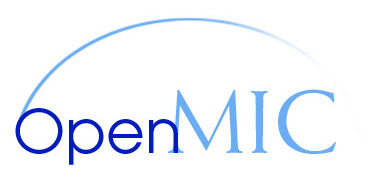
Facebook’s Dual Class Structure
Conceals Dissent; Creates Illusion of Support
Facebook shareholders voted yesterday on proposals at the company’s Annual General Meeting. Following announcement of the results on two proposals supported by Open MIC, Executive Director Michael Connor shared the following statement, highlighting the significance of the vote.
“At today’s Annual General Meeting, Facebook shareholders had the opportunity to support serious and concrete proposals to improve how Facebook manages some of its many problems. But don’t be fooled by today’s announcement, a vague description of how the proposals were “defeated” under a voting scheme in which Mark Zuckerberg disproportionately controls most of the votes. The truth is today’s vote count is an illusion and masks real and growing opposition to how the company has handled multiple controversies over the last few years.
“Facebook’s dual class share structure means that CEO Mark Zuckerberg and a small number of corporate insiders control about 60 percent of the company’s stock. That skews the results, concealing the growing dissent from shareholders.
“When Facebook releases precise vote counts, a deeper look at the votes will provide a true picture of shareholders’ frustration with the status quo at the company. Open MIC will be releasing a more detailed analysis showing what happens when ‘independent’ shareholders – those not associated with Zuckerberg, the board or senior management – have an equal voice and an equal vote. We anticipate seeing strong support for better leadership at the company.
“While the company lags behind and abandons its responsibility to uphold the privacy, civil and human rights of its users, more and more voices are calling for Facebook to catch up and fix its issues – for its 2 billion users and for the future of the company.”
At Facebook, Mark Zuckerberg owns the majority of voting rights through a dual class structure. An average person who buys a share of Facebook purchases a “Class A” common share which entitles the shareholder to one vote. But Facebook also offers “Class B” shares that are controlled by Zuckerberg and a small group of insiders; each Class B share is entitled to 10 votes. Through this dual class ownership system, Zuckerberg controls about 60 percent of the company. Major institutional shareholders have criticized this system, one calling it a “dictatorship,” while Zuckerberg has bragged that he isn’t “at the whims of short-term shareholders.”
Today, Facebook investors voted on two proposals that seek to address the company’s content management issues:
- A shareholder proposal filed by Arjuna Capital and The New York State Common Retirement Fund, and co-filed by Illinois State Treasurer Michael Frerichs, Baldwin Brothers, Inc. and Harrington Investments seeking a report on how the company is managing content governance (including election interference, fake news, hate speech and online sexual harassment propagated by the platform); and
- A shareholder proposal filed by Trillium Asset Management and the Park Foundation, calling for the board to appoint a Risk Oversight Committee, the presence of which may have anticipated and mitigated recent crises.
